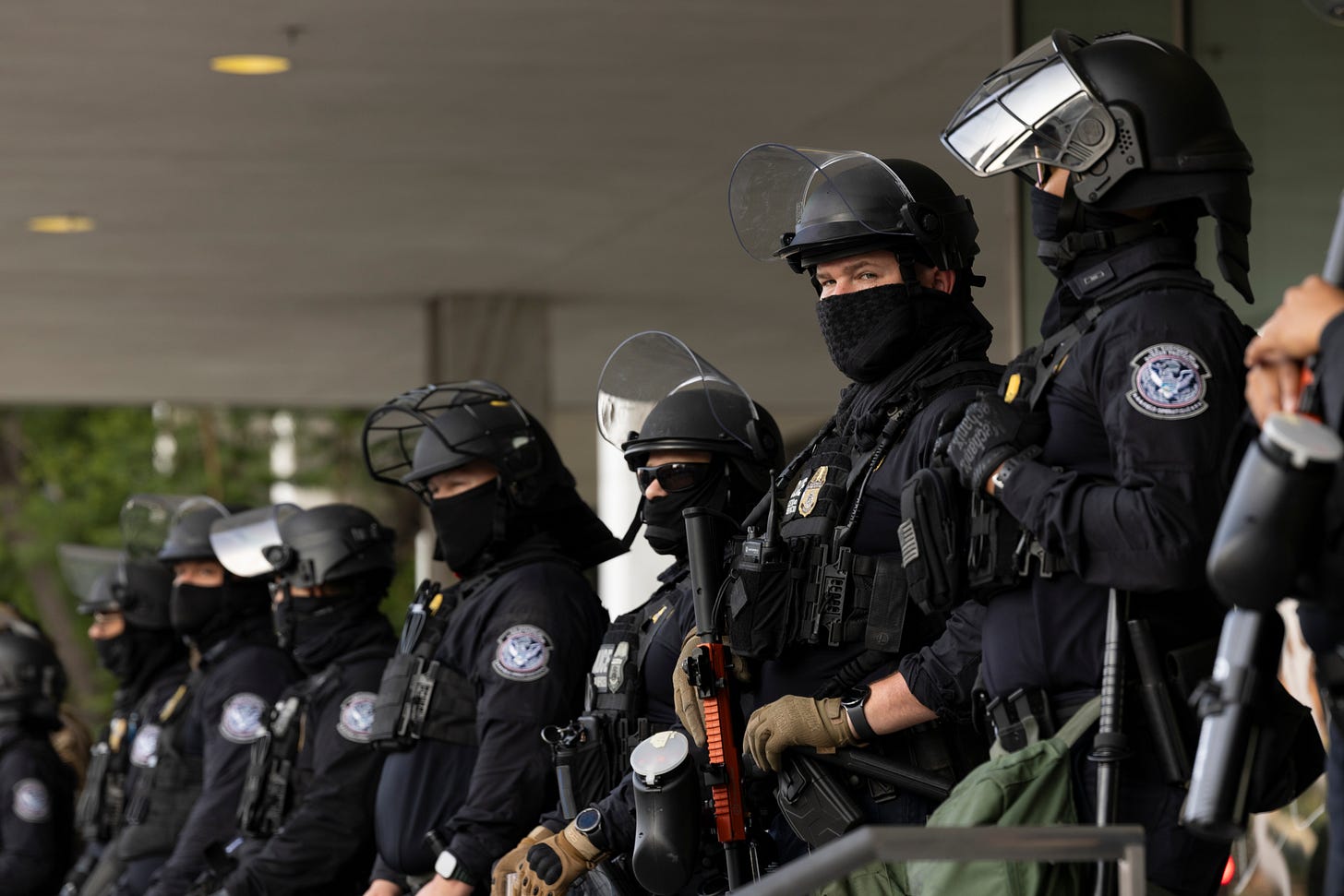On Presuming the Tyrant's Virtue
The Ethics of Seeing What’s in Front of You
Blake Dodge and Katherine Dee have written a piece for Mike Solana’s PirateWires titled “Heather Cox Richardson’s Revisionist History: substack’s top writer, a historian, tells her 2.7 million readers that trump is a dictator.” Solana is VP of Founders Fund, Peter Thiel’s venture capital firm. I knew what I was walking into—a Thiel-adjacent publication attacking someone effectively helping millions of Americans recognize authoritarian danger. I’ve documented this pattern before: sophisticated critique weaponized to delegitimize democratic resistance. Still, I read it carefully, analytically, looking for what it would reveal about their methodology. What I found was even more brazen than I expected: 5,000 words that never once ask whether Heather Cox Richardson’s core thesis is actually correct, that fault her for insufficient charity toward a man who incited violent insurrection, and that treat democratic alarm as a greater threat than the authoritarian practices prompting it. The intellectual fraud was so transparent it became almost fascinating.
The most revealing sentence appears almost casually: “Presumably, Trump could have reasons for doing what he’s doing. But Richardson always assigns the darkest possible intent.”
Presumably. What a magnificent little word to carry so much intellectual fraud.
On what basis—given everything we know about Donald Trump—should a historian analyzing authoritarian trajectories presume benevolent intent when the President deploys military forces against American cities, conducts warrantless mass detentions, or attacks judicial review as “insurrection”? The authors never say. They simply assert that not presuming good faith reveals Richardson’s bias, as if objectivity requires treating a man who incited violent insurrection and pardoned the perpetrators as someone whose subsequent exercises of extraordinary power deserve charitable interpretation.
This is mind-bending concern trolling—5,000 words of sophistication disguising the claim that you’re too worried about authoritarianism, and your worry is the real problem.
Notice what the piece obsesses over: Richardson initially getting Tyler Robinson’s political affiliation wrong. Her framing of Biden’s debate performance charitably. Her subscribers being “nice iPad-loving Boomer ladies” who drink Diet Pepsi. What it systematically ignores: whether Richardson’s core thesis—that Trump’s administration exhibits recognizable authoritarian patterns—is actually correct.
They never engage with the substance. They never ask: Is Stephen Miller’s claim that judicial review constitutes “legal insurrection” an authoritarian rejection of constitutional governance? Are warrantless raids detaining entire buildings of people a Fourth Amendment violation? Does deploying federal forces to cultural events as ethnic intimidation fit historical patterns of authoritarian practice?
Instead, they fault Richardson for not giving Trump sufficient benefit of the doubt. But the burden isn’t on critics to disprove benevolent motives—the burden is on the executive to justify extraordinary power under constitutional constraints. When someone breaks into your house, you don’t owe them the presumption they’re checking for gas leaks.
The authors treat Richardson’s “always assigning darkest intent” as evidence of bias. But what if Trump’s behavior consistently warrants authoritarian interpretation? Then recognizing the pattern isn’t bias—it’s pattern recognition functioning correctly. If someone keeps punching you in the face, interpreting their fist approaching as hostile isn’t paranoia. It’s learning from experience.
The piece is exactly what I’ve documented elsewhere: sophisticated critique weaponized to delegitimize voices that could enable democratic resistance to oligarchic power. Richardson isn’t perfect. But she’s using historical expertise to help 2.7 million subscribers understand authoritarian danger. That effectiveness makes her dangerous to people who profit from democratic confusion.
The tell is what they reveal through omission. They mock Richardson for treating violence as “abstract”—only meaningful when it confirms her narrative. Then they spend paragraphs on leftists celebrating Charlie Kirk’s death while remaining completely silent about Trump mocking grace at Kirk’s memorial, about the crowd’s delighted laughter at that mockery, about the systematic celebration of violence the right demonstrates but never acknowledges.
They’re doing precisely what they accuse Richardson of: making violence meaningful only when it serves their priors.
The piece ends with a challenge: read Richardson, “welcome in the anger, sadness, and confusion,” and decide if they got it right. Fine. I read her. I also read Stephen Miller calling judicial review “insurrection.” I watched Trump pardon January 6th insurrectionists. I documented federal agents conducting warrantless raids, children zip-tied, people sorted by race. I’ve seen the President threaten to use American cities as “military training grounds.”
Richardson gets details wrong sometimes. But her framework predicts Trump’s behavior far better than the “benefit of the doubt” framework the authors never actually defend. And when your charitable interpretation keeps being disproven by events while the “alarmist” interpretation keeps being confirmed, maybe—just maybe—the alarm is justified.
Two plus two equals four. Presuming benevolence without evidence isn’t objectivity. It’s accommodation dressed as sophistication. And accommodation is how democracies die—not through honest recognition of danger, but through cultivated uncertainty about whether the danger is real.




I had to laugh at the description of HCR subscribers. I'm a White male, gun owning, blue collar retiree who drinks bourbon and I start every morning by reading HCR.
"But what if Trump’s behavior consistently warrants authoritarian interpretation? Then recognizing the pattern isn’t bias—it’s pattern recognition functioning correctly."
It's Bayesian analysis functioning correctly...